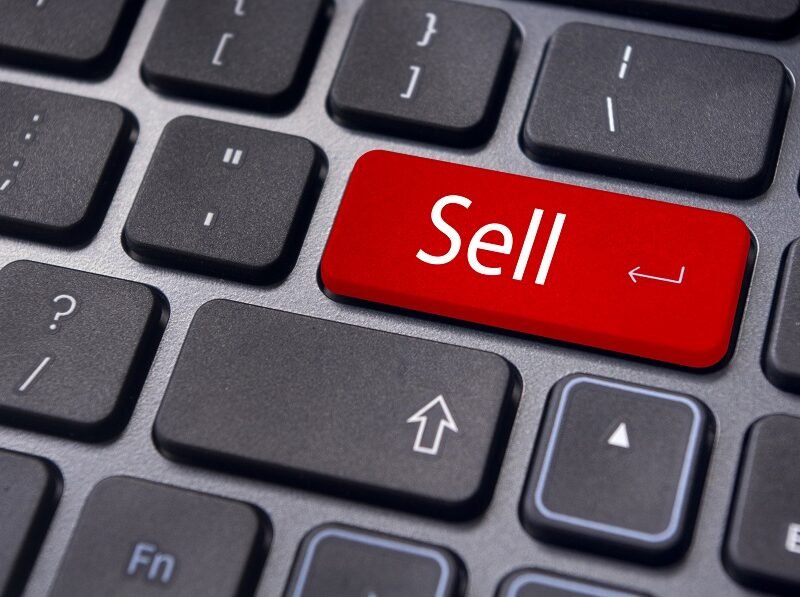How 0-Commission Brokers Make Money

Table of Contents
It is important to know how a business that may dealing with a large sum of your money turns a profit. 0-Commission Brokers like Robinhood have made a name for themselves for ‘democratizing the stock market.’ But how exactly are they able to do this without charging you a commission? What is keeping the lights on at Zero Commission Brokers and incentivizing them to give you this supposedly awesome opportunity to trade for $0 per trade? The answer will surprise you!
What it means to Democratize Finance
By giving customers access to trades that have $0 in commissions, Robinhood, the most prolific of the 0-Commission Brokers, states on its website that it is Democratizing Finance. By this it means that it is allowing everyone to ‘Access the Financial Markets,’ through its platform. Instead of charging $5 to $10 per stock, ETF or Options trade it is charging $0. Theoretically, this lowers the bar for entry for those who may only have a very small amount to invest or trade.
With this definition of ‘democratizing’ in mind and understanding that it is the driving force for 0-Commission Brokers, does lowering the price of a trade from a few dollars to $0 make it cheaper? Or is there something else going? Access to the financial markets is certainly important from an American Values perspective. Thus, understanding how these firms make money is necessary to compare them against the larger backdrop of fee driven brokerage houses.
How 0-Commission Brokers Make that Money
0-Commission Brokers make their money in two ways: from Bid / Ask Spreads and Selling Order flow. Below is an explanation of both.
Bid / Ask Spreads
The bid and the ask are the prices that a stock, ETF or other asset in the stock market can be bought and sold for. For example, if Jeff wants to buy a stock ABC and the Bid is $100 and the Ask is $102 then he will pay $102 for stock ABC. Alternatively, if Jeff has stock ABC he would only be able to sell it for $100. As you can tell from this example, if he had bought and sold instantaneously, Jeff would have lost $2. That $2 would be profit to the brokerage house. This is what it means to profit from the Bid / Ask spread. The wider the spread, then likely the more money the broker is making off the trade.
Note: There are more factors that go into the Bid / Ask spread that have less to do with broker profitability and more to do with market dynamics. Comparing Bid / Ask spreads for a single security across multiple brokers will give you an idea of how the specific business model of the broker may affect your trade.
Selling Your Order Flow
The second way, and substantially more controversial way, that 0-Commission Brokers make money from your business is through selling your order flow. Essentially, once a trader places an order, the broker takes this information and sells it to a third party. This third party is usually able to conduct a counter-trade quicker than the original broker can fill the order for the trader. Thus, if Jeff wants to buy a share in company ABC, the 3rd party buyer of Jeff’s order flow could potentially buy it before Jeff and then sell it to him at a higher cost.
Buy selling a trader’s order flow, a broker can make a fee paid for by a third party. Let there be no mistake, however, there is definitely a cost for the trader. The unfortunate nature of this type of business model is that it is hard to quantify exactly how much Jeff paid in addition to what he would have paid if it weren’t for the order flow being sold. 0-Commission Brokers make a defined amount of money from a 3rd party and their customers have an untold expense.
In essence, 0-Commission Brokers receive a front and center fee that has been traditionally charged to a third party and wraps it up in way that is completely invisible to the individual investor. To be fair, there are advantages to both styles of brokers. Understanding when it may make sense to use a 0-Commission Broker is important to ensure that you don’t unnecessarily pay more to invest than you must.
When Would I Choose to Use a 0-Commission Broker?
So, when would I prefer to choose a 0-Commission Broker? Well, the answer for me is pretty easy… but first a warning. With obvious regulatory requirements and liability issues in focus be reminded that I am not your advisor, and I don’t make recommendations. What you do with your money should be something that you and your Financial Advisor, your banker or Rubik’s Cube decide.
When I Want to Gamble
Using a 0-Commission Broker as a form of entertainment is a perfect choice. Many of these types of brokers have gamified their apps and user experience so using it as a platform to have a little fun is perfect. Limiting the complexity of the trading experience and limiting the amount of money you are trading to only that which you are willing to lose completely fits in nicely as a complement to your horse racing habit.When I am Looking to Test or Learn a New Strategy
If you are looking to start learning about the stock market and all of the different investment options out there, then starting with a 0-Commission Broker is a decent choice. In this sense, the ‘democratizing finance,’ moniker might hold up to its aspirations. Learning what risks different types of securities may hold or how other metrics impact trading (such as liquidity) is something that is definitely accessible with these types of brokers. Having your order flow sold in this type of environment probably doesn’t matter much if your end goal is to obtain knowledge and not a dependable retirement.
When Would I NOT Choose to Use a 0-Commission Broker?
Cutting to the chase: I would not use a 0-Commission Broker with any large amount of money at stake. Frankly, the unquantifiable cost of having my order flow sold only compounds with larger sums. It could be costing only a small amount, or it may be the difference that turns a profitable trade into a loser… nobody knows so I choose to look elsewhere to engage the market. Perhaps some day in the future regulatory bodies will require a full disclosure of the impact of the 0-Commission Broker on various trades, but until that happens, I would only use their services in a highly controlled fashion.
If you are a small-time investor that is looking to trade like the pros then choose a broker that the pros go to. 0-Commission Brokers that sell your order flow or disguise how they are making money from you is definitely not the way to invest your retirement. That said, if you are looking to have fun with a small amount of money or want to test out some ideas then have at it.
Putting it All Together
0-Commission Brokers, such as Robinhood, make their money in two main ways: bid / ask spreads like other brokers, and through selling order flow. Selling order flow is largely opaque and the true cost to the investor is not known. Using these brokers as a form of entertainment or to better understand the market is probably the best use of their services. More traditional brokers vary in their cost structures and fees but are usually able to quantify their cost more directly and thus are less risky for large investments or for retirement.
Guy Money
As a formally trained Data Scientist I find excitement in writing about Personal Finance and how to view it through a lens filtered by data. I am excited about helping others build financial moats while at the same time helping to make the world a more livable and friendly place.



